- Home
- Edmund White
Inside a Pearl Page 19
Inside a Pearl Read online
Page 19
Chapter 14
John Purcell, who’d been living in my old apartment in New York, had become ill with AIDS. I took him and Hubert both on a trip to the Yucatán where they squabbled the whole time. I had promised John I would take care of him if he ever became ill, but Hubert forbade him to visit our house in Providence. In the Yucatán John wanted to open the window of our rented VW Bug but Hubert, with his French fear of drafts, insisted he close it. Then Hubert was constantly saying, “Pardon, pardon,” whenever he entered a door first, and John exploded that he mustn’t keep saying that. Hubert wailed that John was trying to denude him of his exquisite manners. I was ready to tear my hair out.
I had to fly to Mexico City to interview the ageing movie diva María Félix. She kept me waiting for a day while she washed her hair. I couldn’t contact John and Hubert, who were clawing at each other in Mérida, to say I’d be delayed. I couldn’t find the hotel phone number. I contemplated jumping from my hotel’s thirteenth-story balcony. I’d been in Mexico City with my father in 1953, when it was a beautiful Art Nouveau city of a million. Now it was a polluted slum of twenty million with some of the world’s richest people living behind barbed wire protected by guard dogs and swarms of the poor clamoring to sell lottery tickets at every traffic light. It wasn’t so much that I wanted to jump as that I felt drawn against my will to the balcony. I had to lock the glass doors and pull the curtains.
I’d been chosen to interview María Félix because she spoke French but not English. Vanity Fair was looking for a sad Sunset Boulevard portrait. They’d sent Helmut Newton to shoot her, but he was so old he couldn’t brave the capital’s thin air; María Félix had to descend to her villa in Cuernavaca so that he could shoot a hostile photograph of her ropy hands around the neck of her young Polish lover (no face-lifting for the hands). The problem was: I liked María Félix. Sartre had written a film for her. When Carlos Fuentes wrote a bitchy novel about her, she asked to play the part in the movie version. When I asked her how she could walk through the Bois de Boulogne at night and risk being attacked by huge, fierce Brazilian transvestite whores, she replied, “Oh, Monsieur White, I admire them so. We are just biological women; they are artistic, constructed women. They are the real women.”
When I returned to Mérida, we drove to a primitive little town on the north of the peninsula and saw pink flamingoes at dawn; Hubert had seen bigger flocks in Ethiopia. We went to the pyramids in Chichen Itza; both men seemed attracted to the idea of human sacrifice. In Cobá we stayed in a former Club Med, the Villas Arqueologicas, where bougainvillea blossoms floated on infinity pools and Mayan ruins punctuated the jungle nearby. I rented us a modern house between Playa del Carmen and Tulum. John found a bar with congenial drunks nearby; Hubert went on poetic walks alone along the beach in white pedal pushers. Europeans could never master the casual American beach look.
I was so happy to get back to freezing, dreary Providence. Hubert had been so hateful to John that I wondered how I could take my revenge on Hubert without leaving him. I couldn’t leave him; he depended on me completely. I remembered Gide’s wife had punished him for running off with a teenage boy by burning the hundreds of letters he’d sent her over the years—his best writing, he claimed. I decided to stop sleeping with Hubert. I’m sure he thought I had a real distaste for him now that he was ill. My “solution” was as pointlessly cruel as Madeleine Gide’s. Soon enough he really was too ill to have sex.
A few months later I told John I would take him any place he wanted. India? France? He chose Disney World in Orlando. I thought it might be a hoot, but I found it intolerably boring and tacky. At Epcot, we went to some horrid replica of the Eiffel Tower when we’d lived in the real Paris for years. After standing for hours in queues, we went on a fun-house ride past leering dolls popping out of the wall, singing “It’s a Small World” in chipmunk voices. The only authentic pavilion was the Morrocan restaurant, where we ate couscous, spoke French to the waiters, and made dates with them. John was happy because he seduced a black preppy father pushing a pram.
Then Christine phoned me that Hubert was hospitalized in Boston. I rushed to his side on the next plane. John was furious, as if Hubert had staged this illness to spite him. In those days Brown did not have domestic partner health coverage, so the doctor very kindly had risked charges of fraud by registering Hubert under my name. It was a very curious thing having to address Hubert as “Edmund.” He had had to invent a whole story of a lost GI father in order to explain why he was called Edmund White but could barely speak English.
We knew we had to go back to France, for the great, inexpensive medical care, if nothing else. Diane Johnson let us stay in her charming Paris apartment, a block away from Marie-Claude’s. MC had come to visit us once in Key West, but she was always worried she’d run into her ex-husband and his new wife. Laurent and Phyllis had a beautiful house there and were very popular, but for a decade MC forbade me to see them, which was silly. At last she relented. I’d always liked Phyllis, who was bright and inquisitive and who’d turned herself into a talented photographer; Laurent, of course, was an old friend.
John Purcell returned to the Catholic church. His mother had found a kindly priest to play his spiritual guide, Father Mike, whose brother had died from AIDS. John moved back to his parents’ home in Concord. I saw him twice more—in Venice, where we spent a week alone and where he cried because I bought him expensive new clothes (“That shows, Petes, that you think I’ll go on living”), and in Key West, another vacation I ruined by bringing along a twenty-two-year-old English soccer star who was terribly jealous of John—though he was helpless and bedridden—and shockingly rude to him. Oh, and once I took John to a French island in the Caribbean, Marie-Galante, but in those days it didn’t have the luxurious accomodations an invalid needed. John’s only regret was that he’d been in love with the ultimate black preppy in New York, and that man had dropped him (“I wanted just one affair to work out before I died”). John’s high voice, boyish body, and youthful way of dressing—the very thing that attracted many older gay men, the guys who bought him drinks at Julius’—put off straight women and many educated gay men. I tried to get him a job with a top New York decorator, but there was no work. My friend Nathalie was going to hire him to represent a line of furniture she wanted to launch in New York, but she was spooked by his “young girl’s voice” over the phone. Hubert despised him as “a cretin.” I was shocked that these guys didn’t have compassion for each other, since they were dying of the same disease.
Hubert was shutting down. One day, in a state of curiosity rather than panic, he noticed he couldn’t write French words any more. Nor numbers. I rushed him to the hospital and they discovered he’d been attacked by toxoplasmosis, a parasite in the brain. It was reversible, thanks to a drug they’d just discovered (an old drug, though this new application had just been verified). He became thinner and thinner. He could no longer work as an architect; he turned himself into an illustrator. I wrote the text and he did the drawings for a little book called Our Paris. We contacted Claude Picasso’s mother, Françoise Gilot, who now was married to Jonas Salk, the inventor of the polio vaccine. He put us in touch with a Paris researcher who was replacing the plasma of long-term AIDS patients with transfusions from newly infected patients. The idea was that the long-term patients would be helped by the high T-cell counts of the newly ill. It was a good theory, but it didn’t work. We traveled to Marrakesh, which he loved for its warmth. I tried to rent a riyadh, a mansion in the heart of the old city, but when the caretaker saw Hubert’s skinny frame he invented an implausible prior claim on the house. Perhaps he was afraid Hubert would die on his property.
We returned to gray, rainy Paris; Hubert longed for the heat of the desert. Our beloved basset hound, Fred, became too big and strong for him. Hubert was afraid of him and gave him to his gay brother, Julien, and the brother’s lover, François, who was my age. They lived in Nice in a house with a garden; there was a puppy belonging to the upst
airs neighbors for Fred to play with. Hubert’s brother and his lover doted on the dog.
John’s mother called and said he’d died kissing the Cross; they’d inscribed a public bench in Concord with his name. I hosted a big dinner in his honor at Da Silvano in New York, where everyone toasted him. It seemed appropriate.
Hubert and I went back to Morocco, this time to Agadir, where we hired a car. MC said she thought Hubert was too ill to travel, but I imagined riding around as a passenger in a car would be effortless. It turns out it’s exhausting for someone who’s weak and suffering. Hubert was vomiting all the time, due to pancreatitis. He couldn’t hold down any food. The seams in his blue jeans hurt him. so he switched to long Arab robes. His skin became weirdly dark in the sun. Between his robes, skin color, and thinness, everyone assumed he was an Arab, a poor, beat-up, fleshless one; I caught two gold-toothed Moroccan boys nudging each other behind his back and laughing at him.
He slept all the time. He was too weak to climb into and out of the bath; I had to hold his body in my arms to help him. Naked, he looked like an Auschwitz victim. He wouldn’t turn back, but like the dying Kit in The Sheltering Sky kept urging me to go deeper and deeper into the desert. Finally we reached Zagora, on the Algerian border. He became incontinent—he pissed all over himself. The desk clerk didn’t want to give us a room, though the hotel was empty. I was writing something; Hubert had always listened to my latest pages, but now he was too weak to pay attention. He just smiled at me.
Because I insisted, we started driving back toward civilization, but it was the end of Ramadan and crowds were making merry in the nearly impassible roads. We were about as cheerful as a hearse as we waded through all these laughing, smiling people in their best clothes. When we got to Ouarzazate, Hubert collapsed on the way into the hotel. He kept saying he was finished, and when I insisted he get up he told me he detested me; those were his last words to me. A passerby called an ambulance, which meant Hubert was taken to a filthy Arab hospital where even the food for the patients was brought by family members. I’d been struggling against all odds to keep him alive; now I completely lost it. My act of will had come to nought. Moroccans gathered around his body lying in the grass like characters in a painting by Giotto, eager to drink in, to witness, this calamity; they were allegories of observation. I was extremely frank with the three attending physicians, but I’m not sure they knew what AIDS was. They kept assuring me he was on the mend; they seemed determined to be optimistic.
We’d taken out emergency health insurance. I called the agent and he arranged for an ambulance to drive us through the freezing Atlas Mountains to the dirty Clinique du Sud in Marrakesh. On the way through the cold night he moaned and complained about something stabbing him in the back. The driver stopped and turned him over but couldn’t find anything. I assured Hubert there was nothing wrong, which made him hate me all the more (maybe he was feeling pain in the pancreas). The Moroccan nurses at the clinic almost laughed at Hubert’s pitiful state. A male intern hurt him in inserting a saline drip in his arm. I was allowed to sleep in the same room. When I woke up in the morning in the gay sunlight, the saline bag was no longer bubbling; he was dead.
The very severe and unsmiling insurance agent showed up and told me I couldn’t take Hubert’s body back with me. Many papers had to be filled out. Nor did they believe, the Muslims, in embalming. I convinced them to seal him in a lead coffin, though I knew he’d quickly turn to bouillabaisse in the heat.
MC brought her nightgown and toothbrush and spent the night with me when I got back to Paris. I noticed that my hair had turned white, I’d put on fifty pounds, and all my clothes needed dry cleaning. Hubert’s brother Julien and his lover flew up to Paris. They went through all the formalities with me and arranged for Hubert’s coffin to be repatriated. Only the Père Lachaise cemetery had ovens strong enough to blast through the lead coffin to cremate him. Looking at the smoke coming out of the tall chimney, again I thought of the German death camps.
Julien told me that Hubert had lied to me. Their mother had been a hairdresser and had played the accordion, not the concert piano. His grandmother came from Nantes for the cremation. She was a little, fat peasant woman, always joking. She was no aristocrat but lived in a two-room house with a mud floor; she was a simple, kind woman and I was sorry that Hubert’s lies had kept me from knowing her. Julien told me that Hubert had had sex before meeting me with dozens of men over the years in the woods covering Montburon, behind their house. Even though I’m an atheist, for a long time I lit candles in every church I visited.
Chapter 15
In the years that I was living in Paris I paid hundreds of visits to London, sometimes on book tour, but usually just for pleasure. The English could be far more spontaneously social than the French. For one thing, they got drunker more often than the French. The French were constantly tippling wine but were seldom visibly drunk, even if they did have a high percentage of deaths from cirrhosis of the liver. In England, people drank to get drunk, and it was not uncommon to see someone’s mother, a duchess or an important editor, fall down in public.
My English friends could give a drinks party with just a day’s advance notice, and in spite of the vastness of London were willing to travel on the tube many miles. In New York it took me two weeks and in Paris one week to assemble friends for a full-blown dinner party. In London I could start calling and inviting a day or two before.
The English were witty and irreverently gossipy. My agent, Deborah Rogers, always said, “Let’s get together for a good chin wag,” or “Let’s put our knees up,” when I was coming to town. The French, being human, enjoyed gossip but officially were opposed to it. If someone served too much “dish” he ran the risk of being told he was no better than a concierge (who are stereotypically regarded as spies and snitches). The French had such active sex lives and inhabited apartments in such close proximity that they lived in mortal fear of being found out. The English seemed to me more moderate in their sexual exploits and lived in greater isolation—very often in detached houses in vast neighborhoods that were scattered across enormous London. Plus, their press, which was scandal driven, had bred in them a taste and a tolerance for outrage.
In France, by contrast, a law called l’atteinte de la vie privée meant nothing spicy could be written about public figures. In order to learn about sex scandals among the powerful French players, everyone had to consult the numerous Spanish or English magazines trafficking in loose innuendo and salacious he-said, she-said. In France, even if a reporter came armed with loads of evidence and testimony, the accused could bring an immediate lawsuit against the publishers and a fine could swiftly be imposed—a system that helped guard against poorly substantiated, career-killing hearsay, but that also defused investigative reporting. In many ways the invasion-of-privacy law kept French life unpolluted, but it also tranquilized press vigilance, which meant that there was a weak opposition press in France.
One of my dearest friends in England was Neil Bartlett. While he was still at Oxford, he asked if he could stage parts of my novel, A Boy’s Own Story, and I was quick to say yes.
When we met to discuss his ideas, I was still a young-looking and presentable forty-three, used to sleeping with, or attempting to seduce, every gay man I met. After all, we’d just emerged from the seventies, the “golden age of promiscuity” (as Brad Gooch later put it in the title of one of his excellent novels). And even though AIDS had since intervened, I imagined that being in Europe constituted an AIDS holiday, a recess from the emergencies of the disease.
I slept with Neil, who was twenty years younger than I and vulpine but strangely courtly, a bit of a dandy with a touch of the thug. He was attracted to drag and he even wore a dress in a book of photos called Men in Frocks. And yet he was “the man” when we made love.
Right after Oxford he lived in a council flat that was in the East End and a stone’s throw from Lime House. I would stay with him and his adorable roommate, the terribly appealing s
traight director of the Theatre de Complicité, Simon McBurney, with his childlike face and rubbery, hairless body. In England, more than elsewhere, I met many straight men who were sympathique. I had the good luck to observe both men rise in the theater world. The Theatre de Complicité toured outside of England and in England was hosted by the National Theatre on the South Bank. Simon became a recognized screen actor, and Neil went on to take over the direction of the Lyric Hammersmith. Once he presented Benjamin Britten’s Michelangelo Sonnets, and for the program notes he asked me to translate Britten’s choice of the sonnets into English from the original Italian.
Neil also became one of England’s finest writers. He wrote a landmark book, Who Was That Man?, about Oscar Wilde and fin de siècle gay London. His novels Ready to Catch Him Should He Fall, Mr. Clive and Mr. Page, and Skin Lane all had their historical dimensions. He might have dedicated himself just to fiction, but he was also attracted to directing theater pieces of an extravagant, stylized, somewhat campy variety, such as Balzac’s Sarrasine, Racine’s Bérenice and Neil’s own adaptation of Camille. A Vision of Love Revealed was based on Simeon Solomon’s 1871 prose poem, and Neil himself performed it in the nude in a warehouse. He did adaptations and translations of plays by Molière and Racine and farces by Labiche, as well as the English-language premiere of Genet’s posthumous gangster play, Splendid’s, which I had told him about during my research for Genet.
Neil found a lover, James Gardiner, a collector of vintage postcards who produced a book of letters and photographs called A Class Apart that documented an Edwardian affair between an amateur gentleman photographer and his well-hung “butler” who was willing to indulge his employer’s taste for uniforms; the butler wrote touching, misspelled love letters to him when he went off to fight in the First World War. Neil and James bought a bijou residence in Brighton where they entertained me more than once.

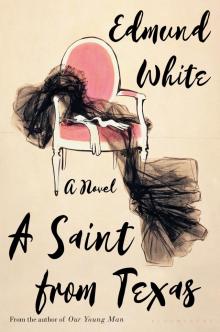 A Saint from Texas
A Saint from Texas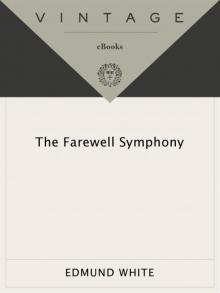 The Farewell Symphony
The Farewell Symphony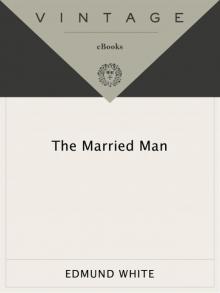 The Married Man
The Married Man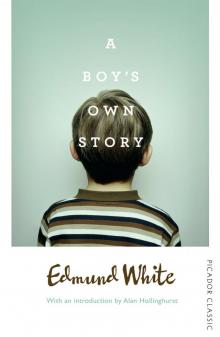 A Boy's Own Story
A Boy's Own Story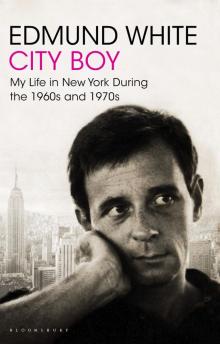 City Boy
City Boy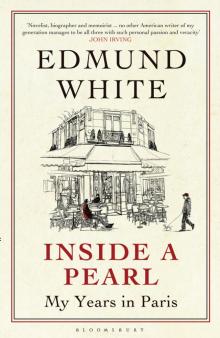 Inside a Pearl
Inside a Pearl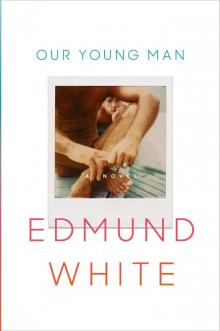 Our Young Man
Our Young Man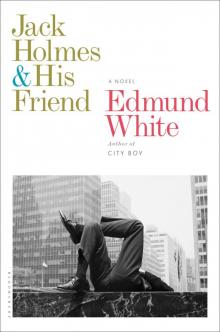 Jack Holmes and His Friend
Jack Holmes and His Friend